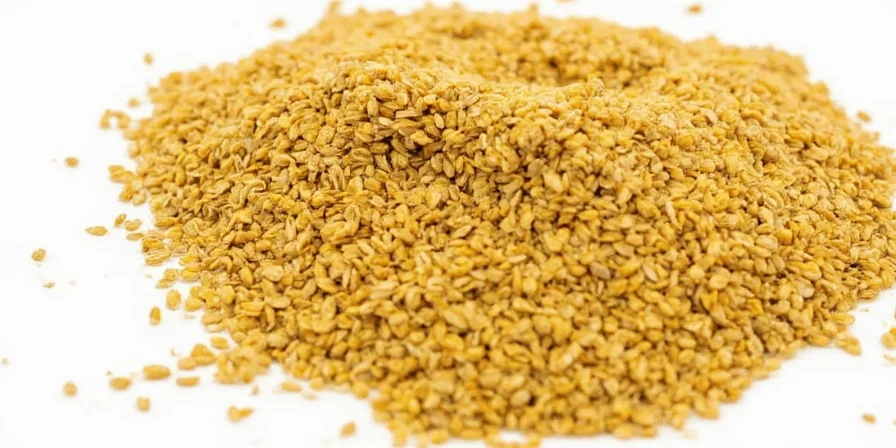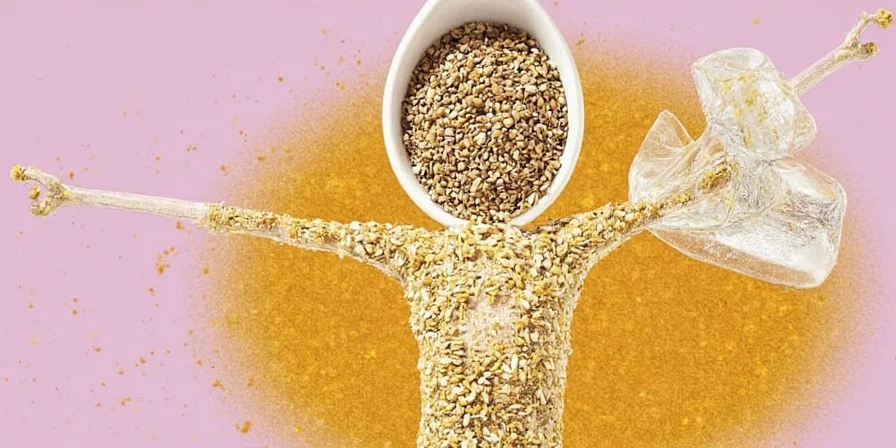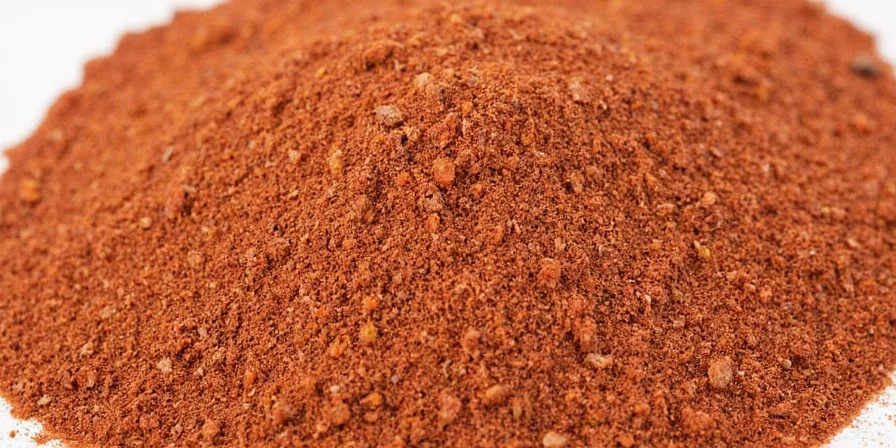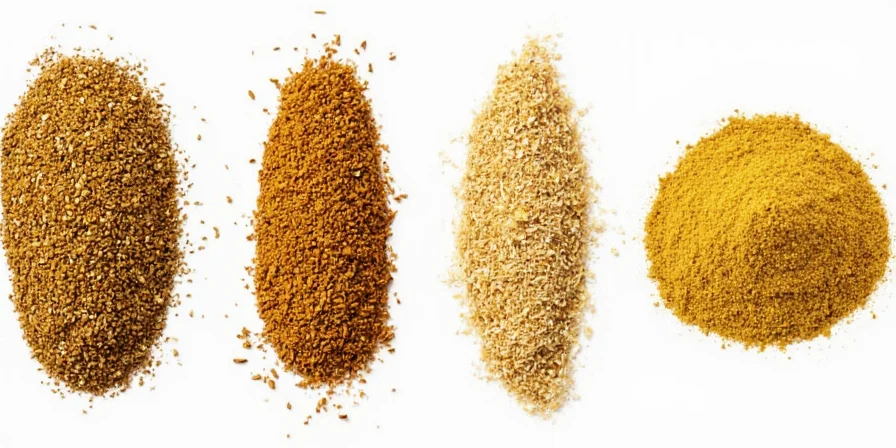If you're searching for mustard seed substitutes, here's what works best: horseradish powder at 1:3 ratio for pickling, fennel seeds for German recipes, and poppy seeds + lemon zest for baked goods. These alternatives replicate mustard's texture, delayed heat development, and acid interaction - the three critical functions most substitutes fail to address.

Unlike generic advice online, these recommendations are based on the biochemical properties of mustard compounds. Mustard's unique pungency comes from sinigrin activated by moisture, creating gradual heat (30-60 seconds). Most substitutes fail because they don't replicate this temporal dimension. Let's explore solutions that actually work for your specific cooking needs.
Why Standard Mustard Seed Substitutes Fail
Most online suggestions miss three critical aspects of mustard functionality:
- Delayed heat development — Mustard compounds activate slowly (30-60 seconds), unlike instant spices
- Texture contribution — Whole seeds provide distinct crunch in pickling and tempering
- Acid interaction — Mustard's flavor evolves differently in vinegar-based recipes

Pre-ground alternatives often fail because sinigrin compounds degrade quickly after grinding. Understanding these principles helps you choose substitutes that actually work for your specific recipe type.
Mustard Seed Substitutes That Actually Work (By Recipe Type)
- Horseradish Powder (1:3 ratio) — Best for pickling and dressings. Mimics mustard's gradual heat development (20-40 seconds). Add to cold liquid and wait 30 seconds before heating.
- Fennel Seeds (1:1 ratio) — Perfect for German sausages and braised dishes. Provides similar crunch with complementary anise notes that won't overpower.
- Cumin Seeds (1:1 ratio) — Ideal for Indian and Mexican dishes. Toast first to mellow bitterness while retaining texture. Adds nutty depth without sharpness.
- Poppy Seeds + Lemon Zest (1:1 + 1 tsp) — Works for baked goods and coleslaws. Replaces visual texture while citrus mimics tang.
- Turmeric + Black Pepper (1 tsp + 1/4 tsp) — Use in mild sauces and rice dishes. Add vinegar to activate mild heat through piperine synergy.

These alternatives address mustard's core functions based on recipe requirements, not generic one-size-fits-all advice you'll find elsewhere.
Mustard Seed vs. Substitutes: Quick Reference Guide
| Substitute | Best For | Ratio | Texture Match | Heat Timeline |
|---|---|---|---|---|
| Mustard Seed | All applications | 1:1 | ✔️ | Gradual (30-60s) |
| Horseradish Powder | Pickling, dressings | 1:3 | ❌ | Gradual (20-40s) |
| Fennel Seeds | German recipes | 1:1 | ✔️ | None |
| Cumin Seeds | Indian/Mexican dishes | 1:1 | ✔️ | None |
| Poppy Seeds + Lemon | Baked goods, slaw | 1:1 + 1 tsp | ✔️ | None |
| Turmeric + Black Pepper | Mild sauces, rice | 1 tsp + 1/4 tsp | ❌ | Instant fade |

This practical comparison shows why horseradish outperforms wasabi for pickling—their enzymatic heat release patterns align more closely with mustard's natural chemistry. Note temperature limits: mustard enzymes deactivate above 150°F (65°C), while horseradish tolerates up to 175°F (80°C).
Pro Tips for Perfect Substitution Results
- For fermented foods: Use horseradish powder at 1/3 strength—it won't disrupt microbial activity like mustard sometimes does.
- In vegan cheese sauces: Poppy seeds + lemon zest creates expected texture without allergens.
- For historical recipes: 18th-century European cooks used ground horseradish during mustard scarcity.
- When speed matters: Mix turmeric with black pepper and vinegar—activates within 5 minutes versus mustard's 20+ minute development.
- For heat-sensitive dishes: Bloom cumin seeds in oil first to mellow bitterness while retaining texture.

Temperature is crucial—mustard's enzymes deactivate above 150°F (65°C), while horseradish tolerates up to 175°F (80°C). This determines which substitute works for simmering applications.
Mustard Seed Substitutes: Practical Solutions for Real Cooking
Running out of mustard seeds isn't a kitchen emergency—it's an opportunity to understand flavor chemistry. The right substitute depends entirely on your specific recipe's requirements, not generic internet advice.

Focus on what your recipe actually needs: texture contribution, delayed heat release, or acid interaction. By matching substitutes to these functional requirements rather than just flavor, you'll achieve consistently successful results. Keep these alternatives stocked based on your most common cooking needs.
Mustard Seed Substitute FAQs
What's the best substitute for mustard seeds in pickling?
Horseradish powder at 1/3 strength. Its enzymatic heat release pattern (20-40 seconds) mimics mustard's gradual development without clouding brine. Fennel seeds work for texture but won't provide the necessary acidity interaction.
Can I use mustard powder instead of whole mustard seeds?
Yes, but use 1.5x more powder since grinding reduces volume. However, powder lacks textural crunch and develops heat instantly rather than gradually. Best for dressings, not tempering techniques where whole seeds are traditionally used.
Why do some substitutes fail in fermented foods?
Mustard seeds contain allyl isothiocyanate that inhibits certain bacteria. Turmeric and cumin lack this property, potentially disrupting fermentation balance. Horseradish powder works better as it shares similar antimicrobial compounds.
How to mimic mustard's delayed heat without seeds?
Combine horseradish powder with cold liquid and wait 30 seconds before adding to dish. The delayed enzymatic reaction replicates mustard's heat curve. Avoid applying heat during this activation window for best results.











 浙公网安备
33010002000092号
浙公网安备
33010002000092号 浙B2-20120091-4
浙B2-20120091-4